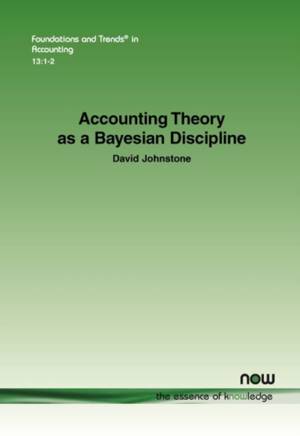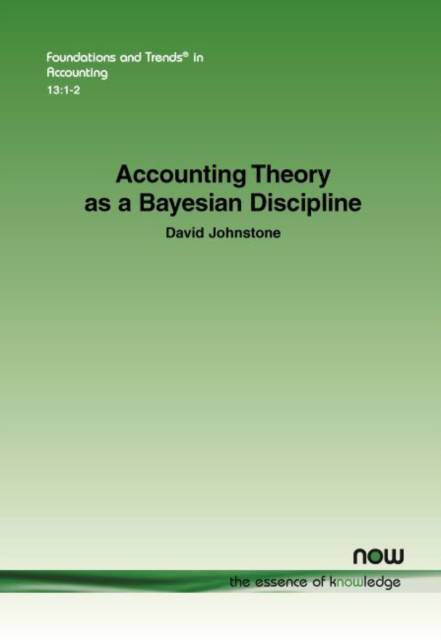
Door een staking bij bpost kan je online bestelling op dit moment iets langer onderweg zijn dan voorzien. Dringend iets nodig? Onze winkels ontvangen jou met open armen!
- Afhalen na 1 uur in een winkel met voorraad
- Gratis thuislevering in België vanaf € 30
- Ruim aanbod met 7 miljoen producten
Door een staking bij bpost kan je online bestelling op dit moment iets langer onderweg zijn dan voorzien. Dringend iets nodig? Onze winkels ontvangen jou met open armen!
- Afhalen na 1 uur in een winkel met voorraad
- Gratis thuislevering in België vanaf € 30
- Ruim aanbod met 7 miljoen producten
Zoeken
Omschrijving
Accounting Theory as a Bayesian Discipline introduces Bayesian theory and its role in statistical accounting information theory. The Bayesian statistical logic of probability, evidence and decision lies at the historical and modern center of accounting thought and research. It is not only the presumed rule of reasoning in analytical models of accounting disclosure, it is the default position for empiricists when hypothesizing about how the users of financial statements think. Bayesian logic comes to light throughout accounting research and is the soul of most strategic disclosure models. In addition, Bayesianism is similarly a large part of the stated and unstated motivation of empirical studies of how market prices and their implied costs of capital react to better financial disclosure. The approach taken in this monograph is a Demski-like treatment of "accounting numbers" as "signals" rather than as "measurements". It should be of course that "good" measurements like "quality earnings" reports make generally better signals. However, to be useful for decision making under uncertainty, accounting measurements need to have more than established accounting measurement virtues. This monograph explains what those Bayesian information attributes are, where they come from in Bayesian theory, and how they apply in statistical accounting information theory.
Specificaties
Betrokkenen
- Auteur(s):
- Uitgeverij:
Inhoud
- Aantal bladzijden:
- 286
- Taal:
- Engels
- Reeks:
- Reeksnummer:
- nr. 40
Eigenschappen
- Productcode (EAN):
- 9781680835304
- Verschijningsdatum:
- 28/12/2018
- Uitvoering:
- Paperback
- Formaat:
- Trade paperback (VS)
- Afmetingen:
- 156 mm x 234 mm
- Gewicht:
- 408 g

Alleen bij Standaard Boekhandel
+ 217 punten op je klantenkaart van Standaard Boekhandel
Beoordelingen
We publiceren alleen reviews die voldoen aan de voorwaarden voor reviews. Bekijk onze voorwaarden voor reviews.











